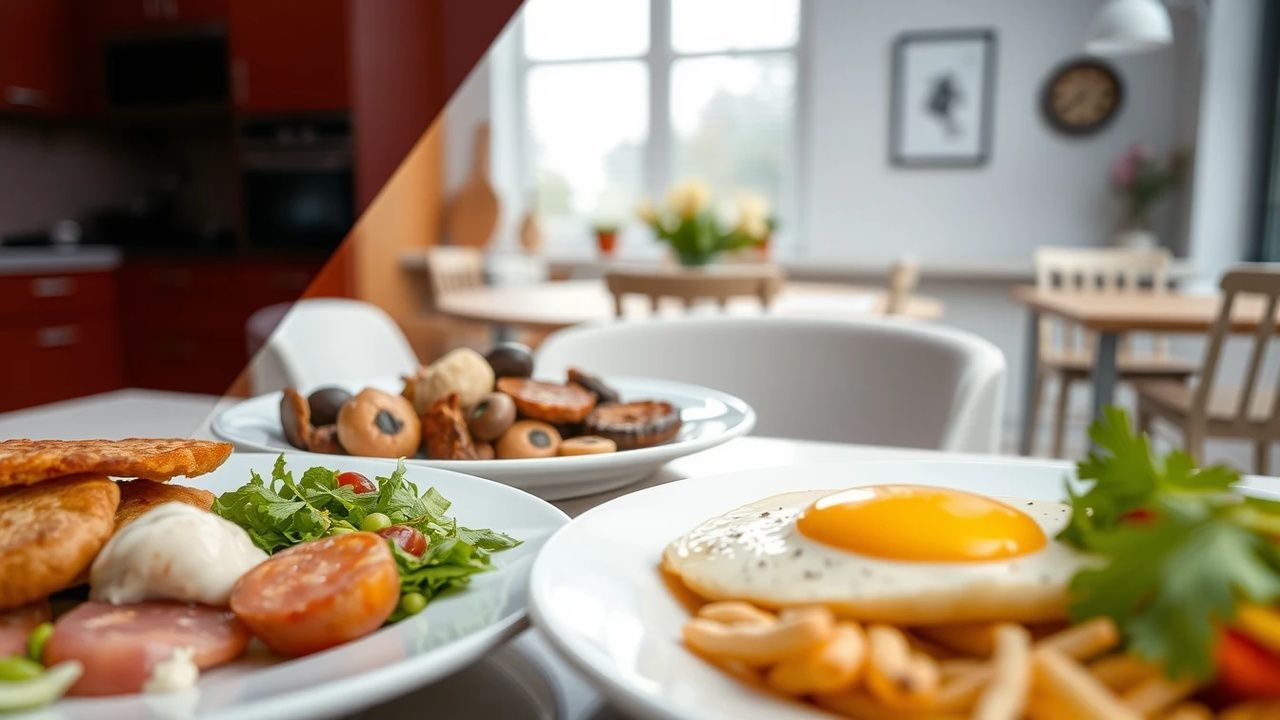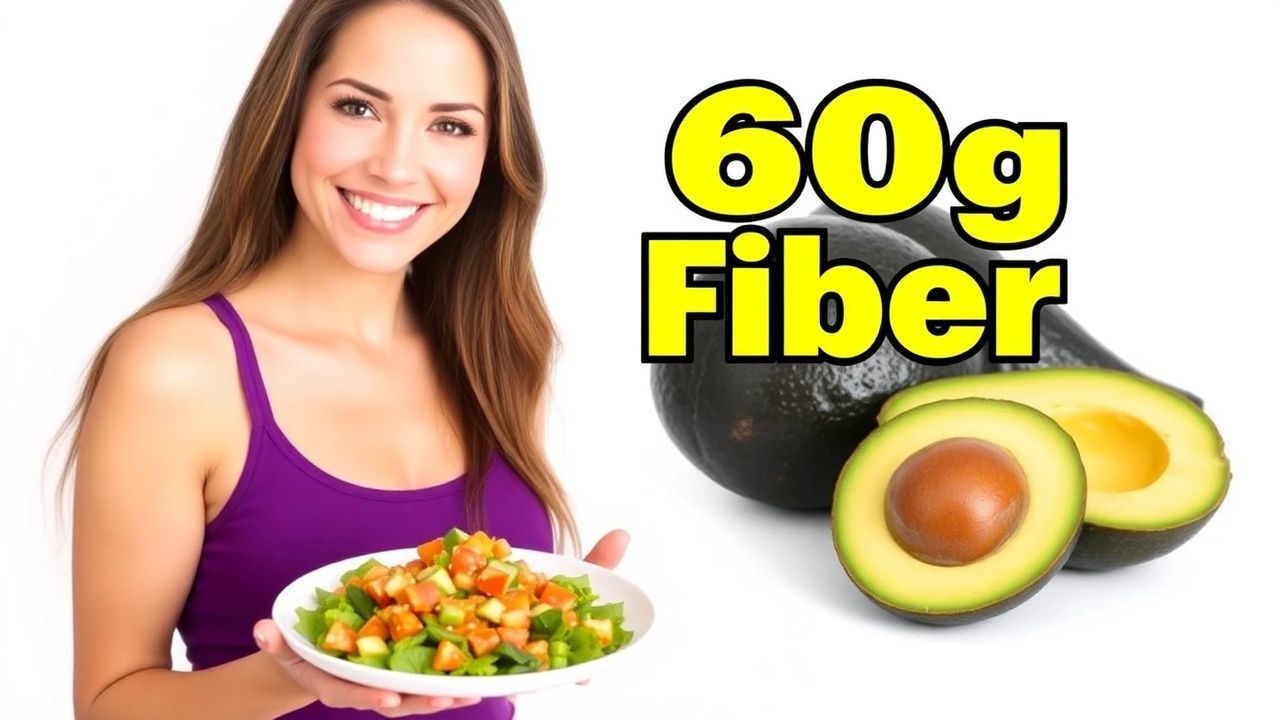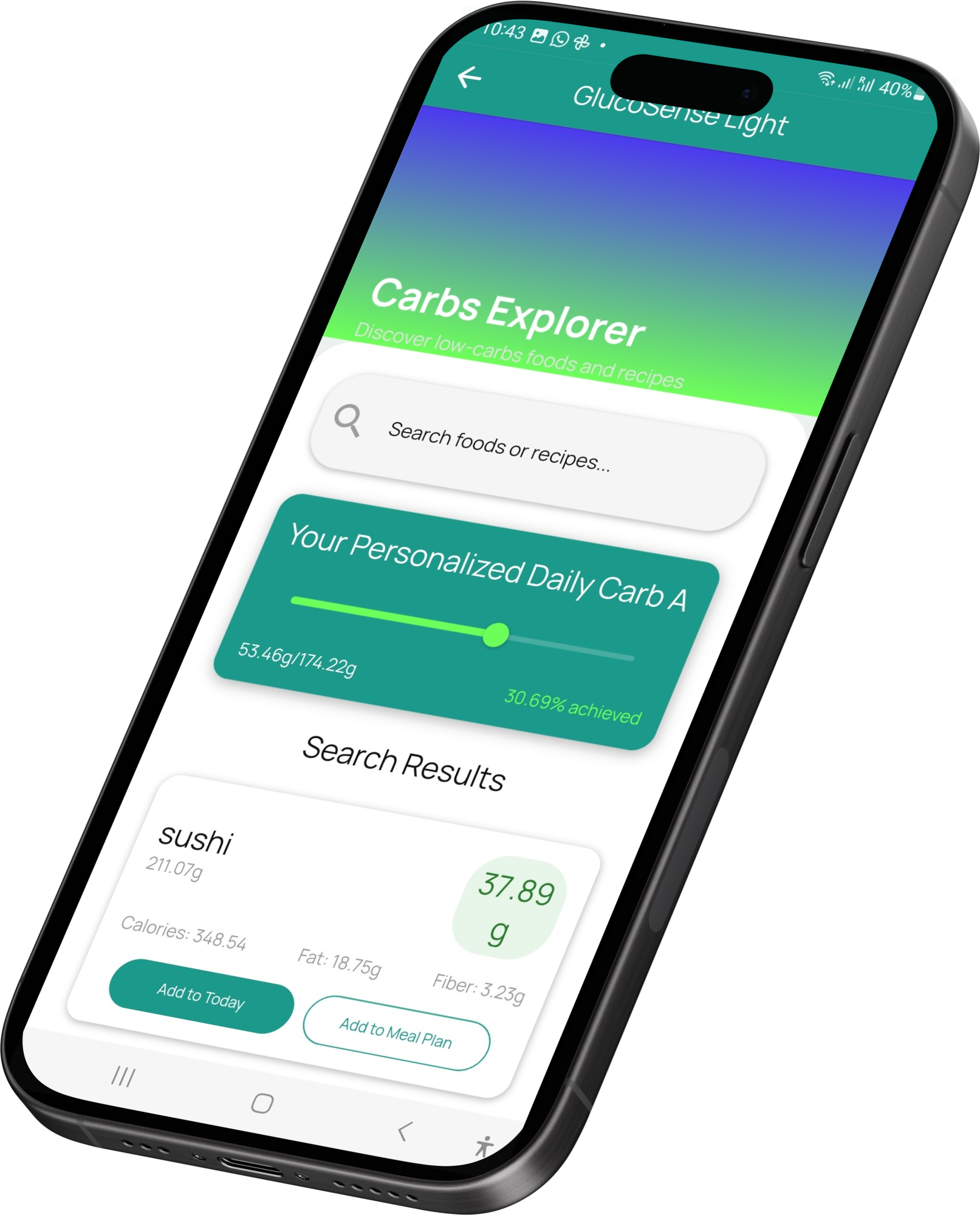Blog-Layout
From IBS to Gut-Flora Glory: Personalized Gut Healing Strategies for Optimal Health
Dr. Emma Thompson • February 14, 2024
From IBS to Gut-Flora Glory: Personalized Gut Healing Strategies for Optimal Health

Struggling with IBS or other gut-related discomforts? It's not just about managing symptoms–it's about thriving. In the dynamic world of gut health, personalized strategies are key to turning gut-flora woes into digestive glory. This blog post is designed to guide you on a path to a happier, healthier gut tailored specifically to your needs.
## Understanding Your Gut Microbiome
Your gut microbiome is as unique as your fingerprint, comprising a complex community of microorganisms. The key to unlocking gut health is understanding that there isn't a one-size-fits-all solution.
## The Personal Approach to Combating IBS
To specifically combat Irritable Bowel Syndrome (IBS), it's essential to map out a plan that's as individual as the condition itself. Here are strategies that can be tailored to fit your needs:
### 1. Identifying Trigger Foods
Keeping a food diary can be an invaluable tool. By noting down what you eat and how you feel afterward, you can identify and eliminate foods that worsen your symptoms.
### 2. The Low FODMAP Diet
A diet low in fermentable oligo-, di-, mono-saccharides and polyols (FODMAPs) can provide relief for many IBS sufferers. Personalize it by reintroducing foods slowly to see what you can tolerate.
### 3. Stress Management is Key
The gut-brain axis means that stress can manifest in digestive symptoms. Personalized stress-reduction techniques such as yoga, meditation, or even cognitive-behavioral therapy can be beneficial.
## Restoring Gut-Flora Balance
Rebalancing your gut flora is a cornerstone of digestive health:
### 4. Introduce Probiotics
Incorporate a probiotic supplement or probiotic-rich foods tailored to your specific gut flora needs. Consulting with a healthcare professional for the right strains can make all the difference.
### 5. Don’t Forget Prebiotics
Your good bacteria need to eat. Include personalized choices of prebiotic-rich foods like chicory root, garlic, or Jerusalem artichoke to feed your beneficial microbes.
## A Personalized Nutrition Plan
Tailoring your diet to your individual needs can improve your gut health:
### 6. Anti-inflammatory Foods
An anti-inflammatory diet can include personalized options such as omega-3 fatty acids, turmeric, ginger, and green leafy vegetables, which contribute to reducing gut inflammation and alleviating IBS symptoms.
### 7. Fiber Intake
Fiber is crucial for a healthy gut, but if you have IBS, the type and amount need to be tailored to your condition. Start low and go slow with fiber-rich foods, and choose soluble or insoluble fibers based on what your body handles best.
## Lifestyle Adjustments for Gut Health
Minor changes in your daily routine can have a significant impact on gut health:
### 8. Regular Exercise
Personalized exercise routines benefit gut motility and the diversity of your gut flora. Whether it's walking, swimming, or a bespoke gym session, find what works for you.
### 9. Adequate Hydration
Water intake is fundamental for gut health. Tailor your hydration levels based on your activity level and dietary fiber intake to manage IBS symptoms effectively.
### 10. Quality Sleep
Establishing a personalized sleep schedule can improve circadian rhythms, which in turn can aid gut health and reduce IBS flare-ups.
## Innovative Gut Healing Therapies
Exploring advanced options for gut health can also be a part of your personalized strategy:
### 11. Fecal Microbiota Transplantation (FMT)
FMT is a cutting-edge therapy aimed at restoring healthy microbiota in individuals with chronic gut conditions. It’s essential to discuss this option with a gastroenterologist to understand its suitability for you.
### 12. Peppermint Oil and Other Supplements
Certain supplements like peppermint oil have been found to alleviate IBS symptoms. Speak with a healthcare provider to identify which supplements could be woven into your gut healing plan.
If you're ready to transform your gut health and seek relief from IBS, start by incorporating these personalized strategies into your life. Share your progress, questions, and experiences with us in the comments below, and remember to subscribe to our Health and Wellness Blog for more personalized wellness insights. Your journey to gut-flora glory is personal, but you don't have to travel it alone.
Remember, while lifestyle modifications can have profound effects on gut health, it's paramount to consult with your healthcare provider to develop a plan that's right for you, especially if you have pre-existing health conditions.
### Expert Guidance and Support
Partner with a dietitian or a nutritionist who specializes in gut health to fine-tune your diet and supplement regimen. An expert can help you decipher complex food labels, choose the right prebiotic and probiotic combinations, and provide accountability and support as you make these important lifestyle changes.
### Continual Learning and Adaptation
As you implement these strategies, keep abreast of the latest research in gut health. The field is rapidly evolving, and staying informed can help you make educated decisions about new treatments and approaches that might benefit your unique situation.
### Embrace the Journey
Finally, embrace the journey towards better gut health as a continuous learning experience about your body. Celebrate the small victories, such as a day without IBS symptoms or the successful introduction of a new food into your diet, and stay positive through the setbacks.
Whether you're taking the first step toward managing IBS or you're well on your journey to gut-flora glory, personalized gut healing strategies offer a path to improved health and well-being. By focusing on the unique needs of your body, adhering to science-backed practices, and seeking professional guidance, you can develop a plan that not only manages symptoms but also enhances your quality of life. Here's to finding your balance and flourishing in gut health!
Remember to share this blog post with anyone who might benefit from a personalized approach to gut health, and if you have tips or success stories of your own, please contribute to the community by adding your voice to the comment section. We're here to support each other on the path to wellness, so let's continue the conversation and grow together.
If you’re looking for a sign to start taking control of your gut health, this is it. Subscribe now for more health and wellness tips, and embark on your journey to a happier, healthier you.
(Note: While this blog post is tailored to offer strategic advice and raise awareness about the importance of gut health, it’s not a substitute for professional medical advice. Always consult with healthcare professionals for medical conditions and before beginning any new dietary or lifestyle regimen.)

By VitalFiberOne Naturals Inc.
•
January 24, 2025
Making grocery shopping a breeze for diabetics! GlucoSense is revolutionizing the way people with diabetes shop for groceries. With its innovative technology, GlucoSense makes it easy to identify and purchase diabetes-friendly food products. Say goodbye to hours of research and label-reading, and hello to a stress-free shopping experience. In this video, we'll show you how GlucoSense is changing the game for diabetics and making healthy grocery shopping a whole lot easier. Whether you're living with diabetes or know someone who is, this video is a must-watch!

By VitalFiberOne Naturals Inc.
•
December 20, 2024
Are you tired of feeling uncertain about your diabetes management? Do you have burning health questions that need answers? In this blog, our panel of diabetes experts are here to provide you with the clarity and confidence you need to take control of your health. From understanding blood sugar levels to managing medications and diet, our experts will cover it all. Get ready to have your most pressing questions answered and start living your best life with diabetes. Whether you're newly diagnosed or have been living with diabetes for years, this video is for you. So sit back, relax, and let's dive into the world of diabetes management together!

By VitalFiberOne Naturals
•
December 18, 2024
Indulge in the flavors of the Middle East with our Fiber Rich Baked Falafel recipe, served with a side of creamy Tahini Sauce! In this video, we'll show you how to make crispy on the outside, fluffy on the inside falafel using chickpeas, herbs, and spices, all while keeping it healthy and fiber-rich. The perfect vegetarian snack or meal option. Our tahini sauce recipe is a game-changer, made with tahini paste, garlic, lemon juice, and olive oil. It's creamy, tangy, and pairs perfectly with our baked falafel. Get ready to elevate your snack game with this easy-to-make and delicious recipe!

By VitalFiberOne Naturals Inc.
•
November 17, 2024
Unlock the secret to a healthier and fitter you with Fiber-Guru's 4 weeks FREE trial! In this blog, we'll introduce you to a revolutionary program designed to help you achieve your fitness goals and transform your body in just a few weeks. With Fiber-Guru, you'll get access to a comprehensive fitness plan, personalized coaching, and a supportive community to help you stay motivated and accountable. Say goodbye to fad diets and hello to a sustainable lifestyle that will leave you feeling energized, confident, and empowered. Try Fiber-Guru today and start your fitness journey with a 4-week free trial!

By VitalFiberOne Naturals Inc.
•
August 26, 2024
Are you trying to lose weight and wondering about the best time to eat? In this video, we dive deep into the optimal meal timing for weight loss. Should you prioritize a smaller breakfast, a moderate lunch, or a light dinner? We explore the science behind meal timing and its impact on your metabolism, hunger levels, and overall weight loss journey. Discover the pros and cons of each meal and learn how to structure your eating schedule for maximum results. Whether you're a breakfast lover or a dinner devotee, this video provides valuable insights to help you make informed choices. Don't miss out on tips and strategies that can transform your eating habits and support your weight loss goals! Tune in and find out the best time to eat for effective and sustainable weight loss. Remember to like, comment, and subscribe for more health and wellness tips!

By VitalFiberOne Naturals Inc.
•
August 17, 2024
Introduction: The Link Between Diet and Mental Health The relationship between diet and mental health has become a growing area of interest in recent years, as more and more research highlights how what we eat can influence how we feel. Mental health, once thought to be purely psychological, is now recognized as being deeply connected to our physical health, particularly through the food we consume. A well-balanced diet not only fuels the body but also nourishes the brain, directly impacting mood, cognitive function, and overall mental well-being. Among the various components of a healthy diet, dietary fiber stands out for its role in promoting mental wellness. Unlike the quick-fix nature of medications, fiber offers a natural, sustainable approach to boosting mood and supporting mental health. In this blog post, we'll delve into the science behind how fiber can enhance mental health, exploring the gut-brain connection, the benefits of fiber over conventional mental health treatments, and practical ways to incorporate more fiber into your diet. By the end, you'll see why boosting your fiber intake could be one of the simplest and most effective ways to improve your mental well-being. Understanding Mental Health Mental health refers to our emotional, psychological, and social well-being. It influences how we think, feel, and act, and it determines how we handle stress, relate to others, and make choices. Mental health is important at every stage of life, from childhood and adolescence through adulthood. Several factors contribute to mental health, including genetics, brain chemistry, life experiences, and family history of mental health problems. Environmental factors, such as living conditions, work stress, and social relationships, also play a significant role. Lifestyle choices, including diet, exercise, and sleep, are crucial determinants of mental health. According to the Centers for Disease Control and Prevention (CDC) and Mayo Clinic, maintaining good mental health is essential for overall well-being and quality of life. In recent years, there has been growing recognition of the role that diet plays in mental health. Poor nutrition can lead to imbalances in brain chemistry, contributing to conditions such as depression and anxiety. Conversely, a nutrient-rich diet can support brain function and emotional stability. Among the various nutrients that impact mental health, fiber has emerged as a key player, particularly in its ability to support gut health and, by extension, mental well-being. What is Fiber? Dietary fiber is a type of carbohydrate that the body cannot digest. Unlike other carbs that are broken down into sugars, fiber passes through the digestive system relatively intact. There are two main types of fiber: soluble and insoluble. Soluble Fiber: This type of fiber dissolves in water to form a gel-like substance. It can help lower blood cholesterol and glucose levels. Common sources of soluble fiber include oats, beans, apples, and citrus fruits. Insoluble Fiber: Insoluble fiber does not dissolve in water. It adds bulk to the stool and helps food pass more quickly through the stomach and intestines. Good sources of insoluble fiber include whole grains, nuts, and vegetables. Both types of fiber are important for maintaining a healthy digestive system, but their benefits extend far beyond digestion. A diet rich in fiber can also promote heart health, support weight management, and, as we will explore, enhance mental health. The Gut-Brain Connection The gut-brain axis is a complex communication network that links the gastrointestinal tract and the brain. This connection is bidirectional, meaning that the brain can influence gut function and the gut can impact brain function. The gut-brain axis involves multiple pathways, including the nervous system, the immune system, and most notably, the microbiome — the trillions of microorganisms that reside in the gut. One of the key ways in which the gut influences the brain is through the production of neurotransmitters. Neurotransmitters are chemicals that transmit signals in the brain and play a crucial role in regulating mood and behavior. For example, approximately 90% of serotonin, a neurotransmitter known for its mood-enhancing effects, is produced in the gut. The health of the gut microbiome is therefore crucial for maintaining mental health. An imbalance in the gut microbiome, known as dysbiosis, has been linked to various mental health disorders, including depression, anxiety, and even autism. Fiber’s Role in Supporting Gut Health Fiber plays a crucial role in supporting a healthy gut microbiome. When dietary fiber is consumed, it travels to the colon, where it is fermented by gut bacteria. This fermentation process produces short-chain fatty acids (SCFAs), which are beneficial for gut health. SCFAs help to nourish the cells of the colon, reduce inflammation, and maintain the integrity of the gut barrier. A healthy gut microbiome, supported by a diet rich in fiber, can have a positive impact on mental health. Research has shown that a diverse and balanced gut microbiome is associated with a reduced risk of mental health disorders. For example, individuals with depression often have lower levels of certain beneficial gut bacteria, which can be improved through increased fiber intake. Moreover, fiber can help to stabilize blood sugar levels, which is important for maintaining a stable mood. Blood sugar spikes and crashes can lead to irritability, anxiety, and mood swings. By slowing the absorption of sugar into the bloodstream, fiber can help to prevent these fluctuations, promoting a more balanced emotional state. Scientific Evidence: Fiber and Mental Health The connection between fiber and mental health is supported by a growing body of scientific evidence. Several studies have found that individuals who consume a high-fiber diet are less likely to experience symptoms of depression and anxiety. For example, a study published in the journal Psychosomatic Medicine found that higher dietary fiber intake was associated with lower odds of depressive symptoms among adults. The study suggested that the anti-inflammatory effects of fiber, as well as its role in supporting a healthy gut microbiome, may explain this association. Another study published in Nutrients found that a high-fiber diet was linked to better mental health outcomes in adolescents. The researchers suggested that the gut-brain axis might play a role, with fiber supporting the production of SCFAs and other metabolites that influence brain function. Furthermore, fiber's ability to stabilize blood sugar levels is another mechanism by which it can support mental health. Blood sugar imbalances have been linked to mood disorders, and maintaining stable blood sugar levels through a high-fiber diet can help to prevent mood swings and promote emotional stability. Comparing Fiber with Conventional Mental Health Treatments While conventional mental health treatments, such as medications and therapy, are effective for many people, they are not without drawbacks. Medications, in particular, can have side effects and may not address the underlying causes of mental health disorders. Antidepressants, for example, can cause side effects such as weight gain, sexual dysfunction, and increased risk of certain chronic diseases. Additionally, they may not be effective for everyone and can take several weeks to start working. In contrast, increasing fiber intake offers a natural, side-effect-free way to support mental health. While fiber is not a replacement for medication or therapy, it can be a valuable adjunct to conventional treatments. By supporting gut health and stabilizing blood sugar levels, fiber can help to enhance mood, reduce symptoms of depression and anxiety, and promote overall mental well-being. Incorporating Fiber into Your Diet for Mental Health Increasing your fiber intake is a simple and effective way to support your mental health. Here are some practical tips for incorporating more fiber into your diet: Start Your Day with Fiber: Begin your day with a high-fiber breakfast, such as oatmeal topped with fruits and nuts, or a smoothie made with leafy greens, flaxseeds, and berries. Choose Whole Grains: Opt for whole grains like brown rice, quinoa, and whole wheat bread instead of refined grains. Snack on Fiber-Rich Foods: Keep healthy snacks like fresh fruits, vegetables, nuts, and seeds on hand to boost your fiber intake throughout the day. Add Fiber to Your Meals: Incorporate beans, lentils, and other legumes into your meals. They are excellent sources of both soluble and insoluble fiber. Don’t Forget Vegetables: Fill half of your plate with vegetables at every meal. Leafy greens, carrots, and broccoli are all high in fiber. Stay Hydrated: Drinking plenty of water is important when increasing your fiber intake, as it helps to prevent constipation and supports overall digestion. Simple and Fiber-Rich Meal Ideas: Breakfast: Oatmeal with chia seeds, blueberries, and a sprinkle of cinnamon. Lunch: Quinoa salad with black beans, avocado, cherry tomatoes, and a lemon-tahini dressing. Dinner: Stir-fried vegetables with tofu and brown rice, seasoned with ginger and garlic. Snack: Apple slices with almond butter or a handful of mixed nuts. Other Natural Ways to Support Mental Health While fiber plays a crucial role in mental health, it’s important to adopt a holistic approach to well-being. Here are some other natural strategies that can complement your fiber-rich diet: Exercise Regularly: Physical activity is one of the most effective ways to improve mood and reduce stress. Aim for at least 30 minutes of moderate exercise most days of the week. Prioritize Sleep: Good sleep is essential for mental health. Establish a regular sleep schedule and create a relaxing bedtime routine to ensure you get enough rest. Practice Mindfulness: Mindfulness techniques, such as meditation and deep breathing, can help to reduce anxiety and improve emotional regulation. Stay Connected: Social support is vital for mental health. Make time to connect with friends and loved ones, whether in person, over the phone, or online. Eat a Balanced Diet: In addition to fiber, ensure your diet includes plenty of fruits, vegetables, lean proteins, and healthy fats. Nutrients like omega-3 fatty acids, vitamins B6 and B12, and magnesium






